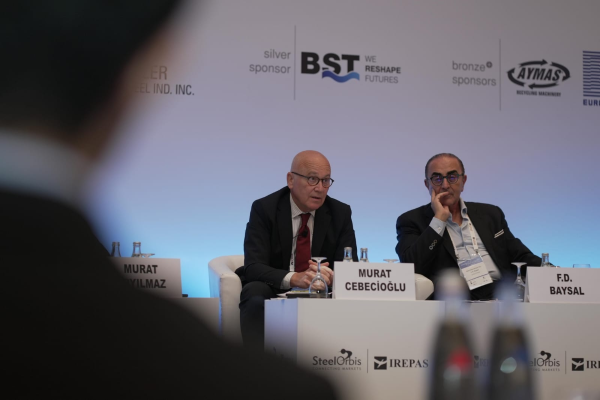On the last day of the SteelOrbis 2025 Fall Conference & 93rd IREPAS Meeting held in Munich on September 28-30, speaking at the panel session Murat Cebecioğlu, chairman of IREPAS and also chairman of the producers committee, touched upon one of the major topics in the steel industry, namely, protectionism. He said that, as demand is very limited, everybody is trying to protect what is theirs. “We can sell to the EU only once every three months because of the quota and it fills up as soon as the quota is opened. Because of China we cannot sell to many places. Chinese exports are hurting everyone,” he explained. The committee chairman pointed out that China is the main driver, exporting heavily at low prices, exerting pressure everywhere amid generally limited demand. Many countries are imposing protective measures not only on China but also on some other Asian countries, considering that the Chinese are quick to move their production elsewhere to avoid trade barriers.

Regarding Turkish mills’ capacity utilization rates, Mr. Cebecioğlu pointed out that, under current market conditions, utilization rates are not at decent levels and, with protectionist measures still in place, Turkey has limited space to export, with only a few countries left, and competition is very tough in those countries. He also added that the countries to which Turkey used to export have become exporters themselves and this affects Turkish production in return. Turkey’s steel production capacity stands at around 60 million mt, but the country is currently producing just 38 million mt. In addition to trade measures, China is exporting heavily all around the world and, as it is difficult to give low prices to compete with the Chinese, in the end Turkish mills have to cut production, he remarked.
Commenting on China’s work plan for the steel industry in 2025-26, the IREPAS chairman underlined that the Chinese are always coming up with some kind of plan, but it is yet to be seen how much of it will be implemented and how they will proceed. This work plan, he noted, consists of many things; regulations, environmental constraints, shutting of inefficient mills, and technological upgrading for green steel and low carbon production. In the end, future competition will depend on being cleaner, he stressed. He also commented that, if this Chinese work plan goes through, it will mean that there will be export regulations, leaving room for Turkish mills to breath.
Talking about the mega projects in the GCC region, Cebecioğlu said that demand is quite good in the region and GCC-based mills are also exporting to the EU and North African countries, where they are very competitive against the Turkish mills. As GCC mills have lower costs compared to Turkish mills, they have the upper hand in prices in terms of costs.